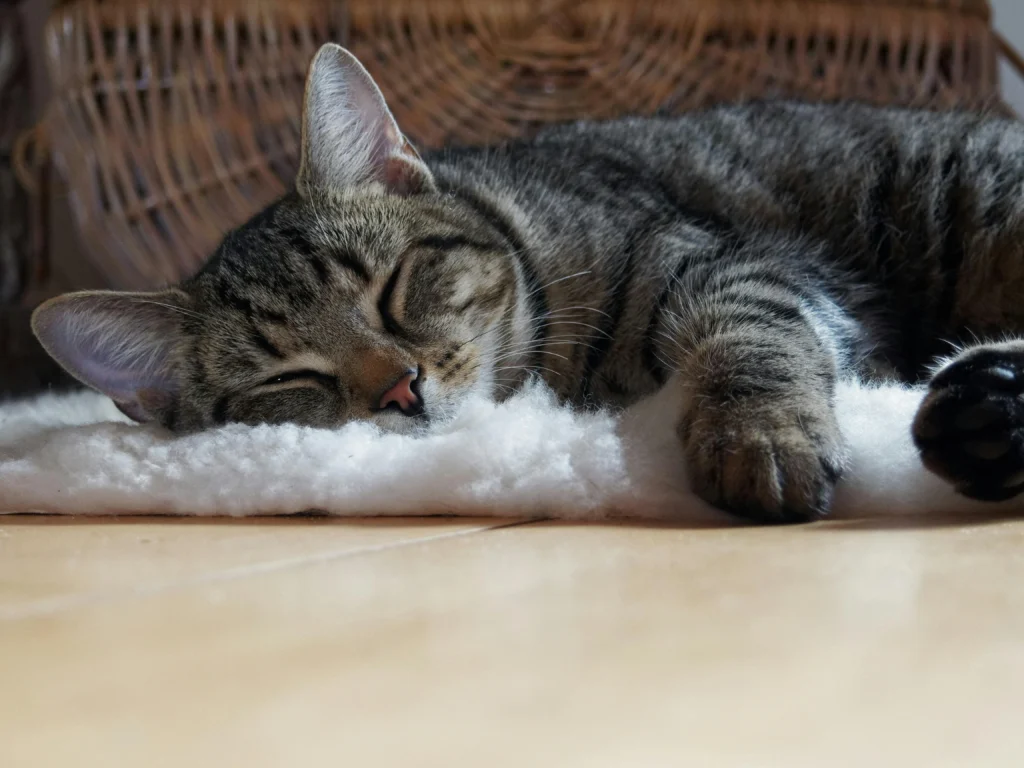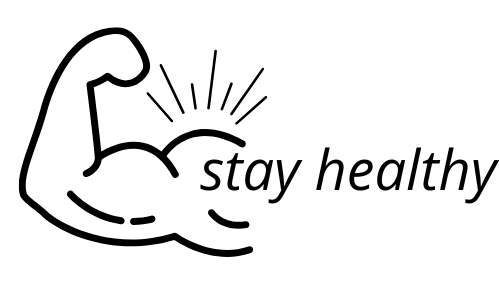Stress Management: Simple Techniques for Better Health
Life can feel like a rollercoaster of challenges, with stress lurking around every corner. You’re not alone. About 77% of people regularly feel physical symptoms from stress. And 73% say stress affects their mind, making daily life tough.
Stress management is more than just a buzzword. It’s essential for keeping your mind and body healthy. When stress gets too much, it can harm your health. Learning to handle stress is crucial for finding peace and energy again.
Mindfulness techniques are great for fighting stress. They help you understand and control your stress reactions. This way, you can build strength and live a more balanced life. No matter the stress, managing it well can help you take back control.
Table of Contents
Understanding the Impact of Stress on Your Body and Mind
Stress is more than just a mental challenge. It’s a complex response that affects your whole well-being. Chronic stress can harm nearly every system in your body.
“Stress is not what happens to you, but how you react to it.” – Hans Selye
Physical Manifestations of Chronic Stress
Your body responds to stress in many ways. Research shows that about 77% of people experience physical symptoms from stress. These symptoms include:
- High blood pressure affecting 47% of adults
- Muscle tension and recurring headaches
- Digestive system disruptions
- Weakened immune response
Mental and Emotional Landscape
Stress also affects your mental health. Cognitive restructuring is key to understanding this. About 73% of adults face significant psychological symptoms, such as:
- Difficulty concentrating
- Persistent anxiety
- Mood swings
- Memory challenges
The Fight-or-Flight Response
Relaxation exercises can help manage stress reactions. The fight-or-flight response, meant to protect you, can harm when stressed too much.
Understanding these impacts is crucial. Chronic stress isn’t just uncomfortable—it can lead to serious health problems if not managed.
The Power of Physical Activity in Stress Relief
Physical activity is a strong tool against stress. It’s not just about moving your body. It’s about fighting stress and boosting your health. By managing your time well, you can fit in exercise every day.
There are many ways to reduce stress through physical activity:
- Cardiovascular exercises like running or cycling
- Strength training to build resilience
- Yoga and tai chi for mind-body connection
- Walking or light stretching for gentle movement
Exercise releases endorphins, which are natural mood boosters. They help balance out stress hormones. Just 30 minutes of moderate activity can greatly improve your health.
| Exercise Type | Stress Reduction Benefits | Recommended Duration |
|---|---|---|
| Aerobic Exercise | Lowers cortisol levels | 150 minutes per week |
| Strength Training | Improves mood and self-esteem | 2-3 sessions per week |
| Yoga | Promotes mindfulness and relaxation | 3-4 sessions per week |
Your body reacts to exercise by reducing stress. It can lower blood pressure and improve heart health. By prioritizing exercise, you’re choosing a powerful way to manage stress.
Mindfulness and Meditation Practices for Inner Peace
Learning to manage stress through meditation can change your life. Mindfulness is a powerful tool for finding peace in our busy world. Studies show that meditation is backed by science, improving both mental and physical health.
Modern science has shown the big impact of mindfulness. Studies show amazing benefits of regular meditation:
- Reduce stress levels by up to 30%
- Improve emotional regulation by 75%
- Enhance focus and concentration
- Decrease anxiety symptoms
Breathing Techniques for Immediate Calm
Your breath is a strong tool against stress. Simple breathing exercises can quickly calm your body. Deep, controlled breathing stops the stress cycle, helping you find balance fast.
Guided Meditation Basics
Starting with guided meditation is easy. Apps and online resources offer structured mindfulness paths. They help you develop emotional regulation skills.
| Meditation Type | Duration | Benefits |
|---|---|---|
| Mindfulness Meditation | 10-20 minutes | Reduces anxiety, improves focus |
| Body Scan Meditation | 15-25 minutes | Releases physical tension |
| Loving-Kindness Meditation | 15-30 minutes | Increases compassion |
Progressive Muscle Relaxation
This method helps release tension by relaxing muscles. By tensing and relaxing muscles, you can lower stress and boost body awareness. Regular practice helps you better recognize and manage stress.
Nutrition and Lifestyle Changes for Stress Management
Your diet is key to handling stress at work. During National Stress Awareness Month, it’s important to see how food affects your mind and body. Stress can use up important nutrients and upset your body’s balance.
Making smart food choices can help you deal with stress better. Add these nutrients to your meals:
- Omega-3 fatty acids from salmon and walnuts to lower cortisol
- Complex carbs to keep blood sugar steady and boost serotonin
- B vitamins for steady energy and mood
- Magnesium-rich foods to control stress hormones
- Vitamin C to help adrenal glands and boost immunity
Changing your lifestyle is also vital for managing stress. The CDC says 150 minutes of exercise a week can help. Also, get enough sleep, cut down on phone time, and keep work and personal life separate.
Small changes in diet and lifestyle can make a big difference in stress resilience.
Stay away from junk food and too much caffeine or alcohol, as they can make stress worse. Eat whole foods, drink plenty of water, and follow daily routines that help your health.
Building Emotional Resilience Through Social Connections
Your social network is key to managing stress and staying emotionally strong. Studies prove that those with strong social ties have lower stress and better health. Making deep connections can be a strong way to fight off daily stress.
Talking to others releases good hormones that fight stress. People with strong support systems handle tough times better and stay emotionally stable.
Creating Support Systems
Creating a strong support network takes effort. Here are ways to build meaningful connections:
- Invest time in existing relationships
- Join community groups or classes
- Volunteer for local organizations
- Practice active listening
- Be vulnerable and authentic
Setting Healthy Boundaries
Managing stress well means setting clear boundaries. Healthy boundaries protect your emotional well-being and stop stress from others. Learn to say what you need and take care of yourself.
Communication Strategies
Good communication is vital for emotional strength. Focus on speaking clearly, listening well, and solving problems together. Mindfulness helps you talk more genuinely and avoid misunderstandings.
Strong social connections are not just a luxury—they’re a fundamental component of mental health and stress reduction.
Sleep Optimization and Stress Reduction

Sleep is key to managing stress and keeping you healthy. About 30% of adults struggle with insomnia, showing how sleep issues and stress are linked. When you’re stressed, your body releases cortisol and adrenaline. These can mess up your sleep cycle.
Relaxation exercises can really improve your sleep. Studies show that certain self-care activities can make a big difference:
- Mindfulness meditation cuts down insomnia by 30%
- Deep breathing exercises boost sleep quality by 20%
- Progressive Muscle Relaxation lowers stress-related discomfort by 25%
Having a regular sleep routine is important for stress management. Keeping a consistent sleep schedule can make you sleep better by 15%. Try these tips:
- Stick to a bedtime routine
- Make your bedroom a calm place
- Avoid caffeine and screens before bed
- Do some gentle stretching or meditation
Getting morning sunlight and doing light exercise can also help your sleep. A short walk outside can boost serotonin and fix your sleep rhythm. This helps with stress and better sleep.
Remember, quality sleep is not a luxury—it’s a fundamental component of your mental and physical well-being.
Creative Outlets and Stress Management
Stress can take a toll on your emotional energy. But, creative activities offer a strong way to fight back. They help you change your thinking and manage your feelings better. Studies show that creative activities can really help your mental health.
Trying out creative activities can really lower your stress. Here are some amazing findings:
- 75% of people felt less stressed after getting creative
- 80% said they focused better and were more alert
- 45% found calm through adult coloring books
- 70% felt happier by expressing themselves creatively
Journaling for Mental Clarity
Journaling is a great way to deal with your emotions. It lets you reflect on your life safely. Studies show that journaling can make you 30% more aware of yourself.
“Writing is a form of therapy; sometimes I wonder how all those who do not write, compose, or paint can manage to escape the madness, melancholia, the panic and fear which is inherent in a human situation.” – Graham Greene
Hobby Engagement Benefits
Getting into hobbies can really help with stress. Whether it’s painting, gardening, or playing music, these activities are good for your mind. They offer big psychological benefits:
| Creative Activity | Stress Reduction Benefit |
|---|---|
| Gardening | 40% anxiety reduction |
| Music/Dance | 50% mood enhancement |
| Crafting | 65% improved problem-solving |
See your creativity as a strong way to manage stress. Your mental health will appreciate it.
Professional Support and Therapeutic Approaches

When stress at work gets too much, getting help is key. Mental health experts have strategies to handle stress well.
There are many ways to improve your mental health:
- Cognitive Behavioral Therapy (CBT)
- Mindfulness-Based Stress Reduction (MBSR)
- Acceptance and Commitment Therapy (ACT)
Therapists and counselors offer support that fits your needs. 77% of adults say stress affects their health. So, getting help is more important than ever.
“Finding the right therapeutic approach can transform your stress management journey.”
Many companies have programs to help with stress. These include Employee Assistance Programs (EAPs). They help you learn to cope and grow stronger.
When looking for a mental health professional, think about:
- Professional credentials
- Specialization in stress management
- Insurance coverage
- Personal comfort and connection
The Substance Abuse and Mental Health Services Administration (SAMHSA) National Helpline at 800-662-4357 can offer more help. They can also suggest treatment facilities.
Conclusion
Managing stress is a personal journey that needs commitment and good time management. How you handle daily pressures affects your health and happiness. It’s important to find stress-relief methods that fit your lifestyle.
Meditation is a key tool for stress relief. It helps build emotional strength, lowers anxiety, and boosts mental focus. By using deep breathing, mindfulness, and daily routines, you can fight chronic stress and its health risks.
Success in managing stress comes from consistent effort and knowing yourself. Find out what stresses you and plan ways to deal with it. You can use exercise, healthy eating, social support, or creative activities to lower stress and improve your life.
Stress management is a continuous journey. Be kind to yourself, try different methods, and focus on your mental and physical health. Small, steady changes can make a big difference in facing life’s challenges.








7 Comments
Comments are closed.